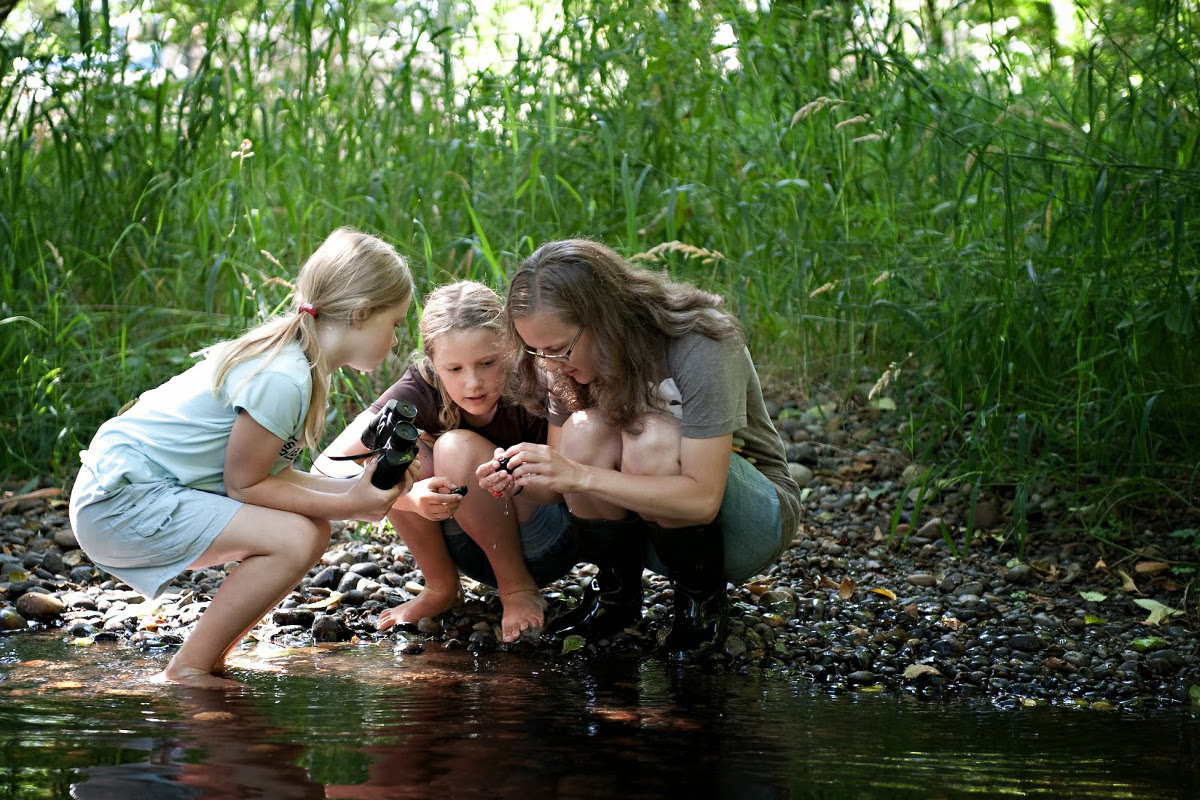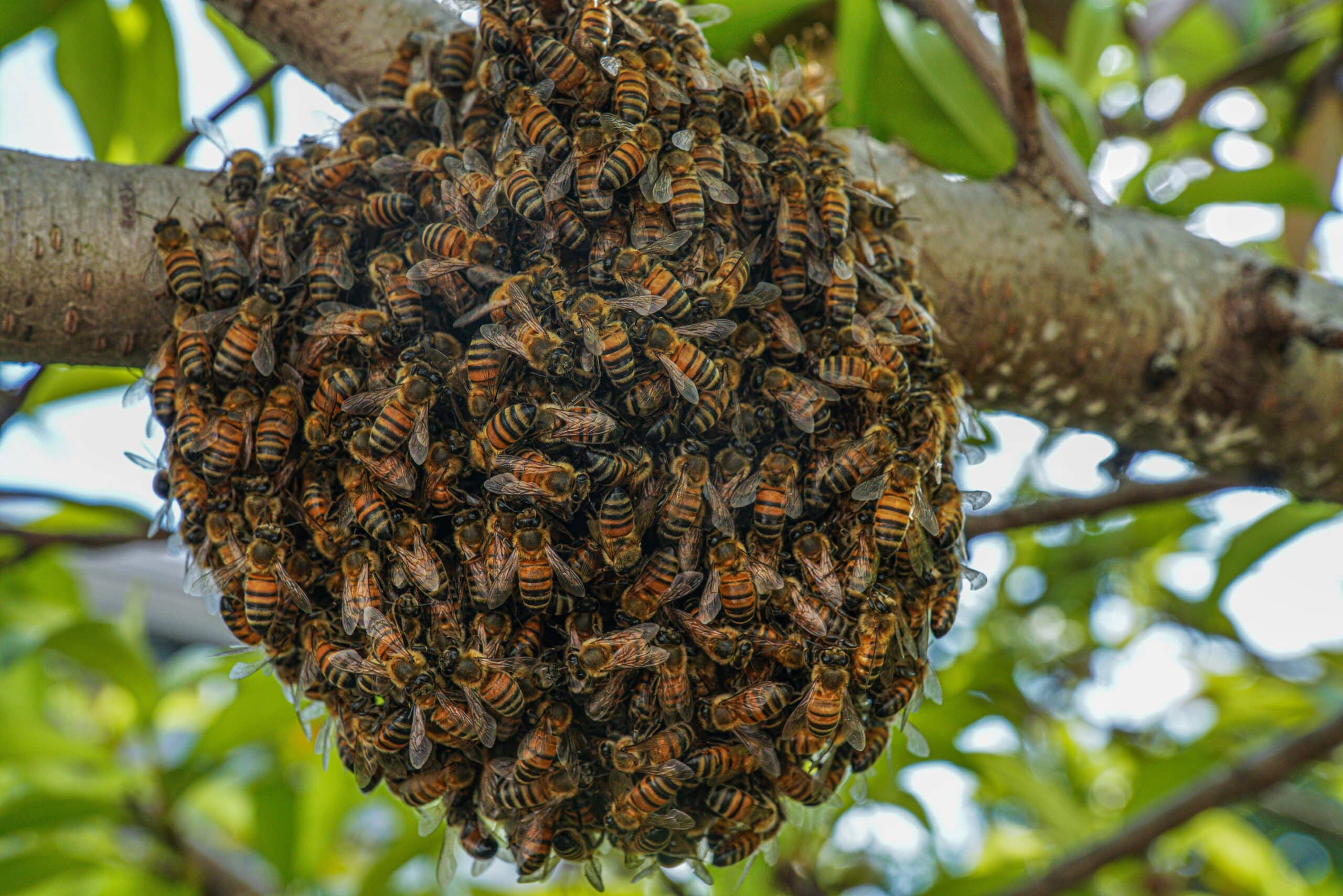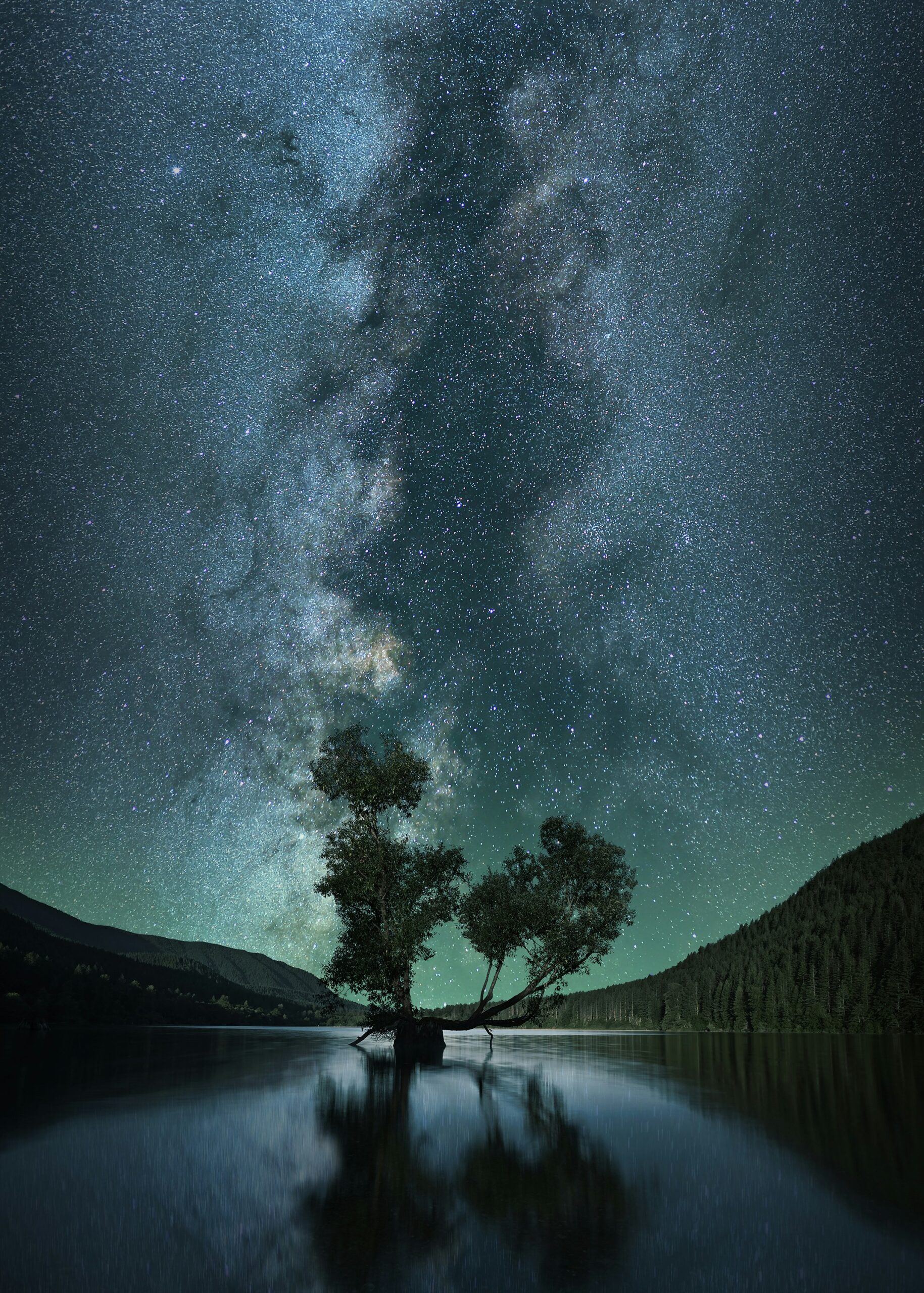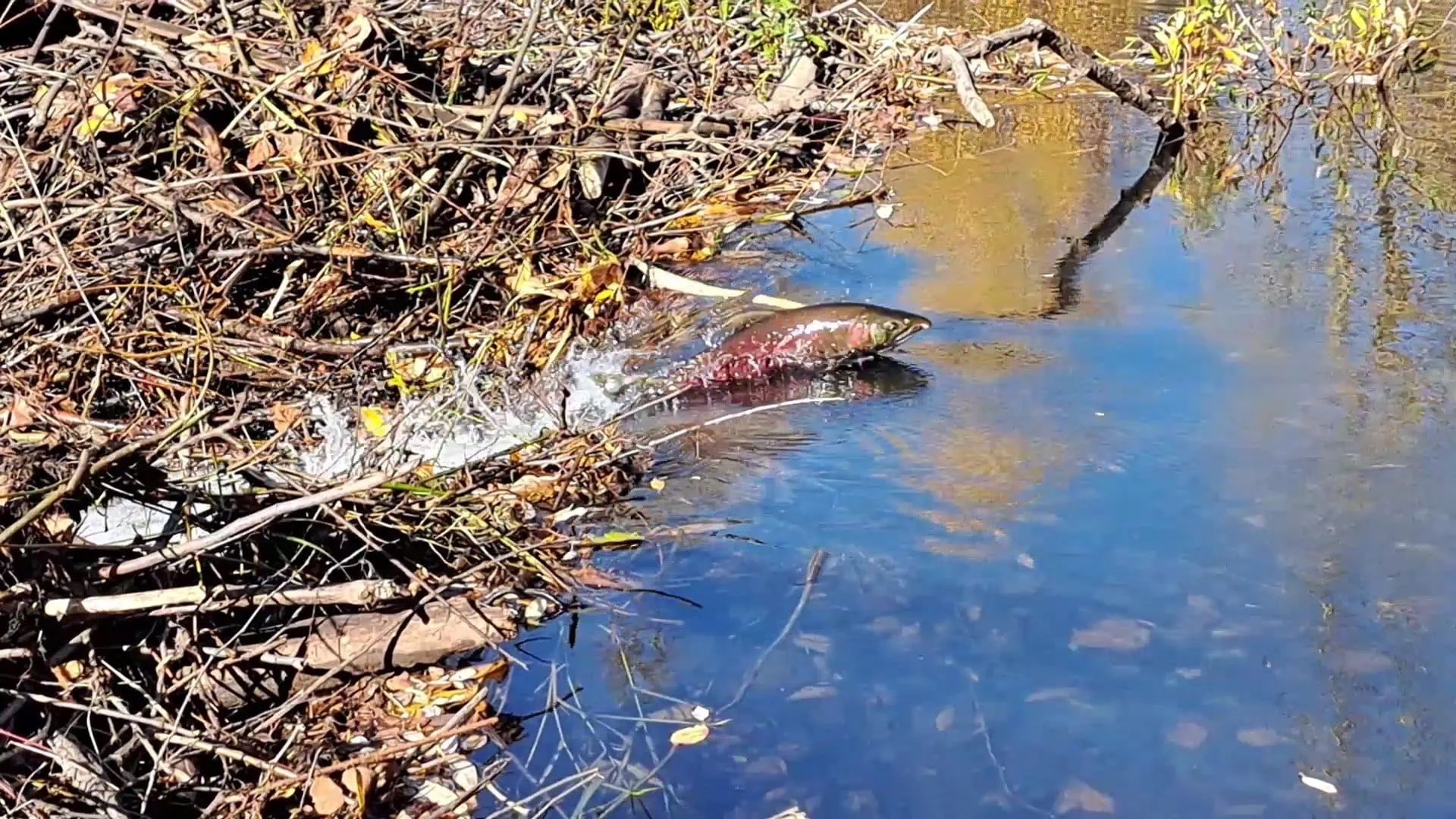A Sucker for Easter

Photo: © Brooke McAllister
In these days drawing near to Easter I am mindful of Christ’s work of redemption – of His design to reconcile ‘all things’ to Himself, as Paul says in Colossians. His work of redemption not only transforms human lives, but all of creation as we participate with him in his reconciling work. Allow me to illustrate.
I was strolling across the lawn at A Rocha’s Brooksdale Environmental Centre when one of our summer interns came scurrying by carrying a bucket. When I asked what it held she showed me a grey, wide-lipped fish swimming in a few inches of water. Her voice betrayed her excitement as she related that she was off to the program office to identify it.
Turns out it was a Salish Sucker — an endangered species. Not seen in our watershed since the 1970s, this species had been considered ‘extirpated’ in the Little Campbell River system. Needless to say, her find was a very big deal!
When I asked later about the experience of discovering an endangered species, she told me the story of the day. Upon waking she had felt like God was saying to her, ‘I have a surprise for you today.’ She went about her day, doing interny things, wondering all the while when the ‘surprise’ was going to show up. Near the end of the afternoon, she toured some visitors around the A Rocha property and down to the pond where she could check a fish trap which was being used as part of an invasive species monitoring project. In fact, this was to be her last ‘check’ of the season. As she bent to pull the trap out of the water she felt God saying, ‘Here’s your surprise.’
Her eyes brightened as she told me how she lifted the wire cage and found, not a Pumpkinseed fish or one of the other invasive species she’d been catching all summer, but a strange fish that looked too big to even fit through the opening of the trap. She knew immediately that it was something special.
I grinned widely. ‘Wow! Amazing!’ I said. ‘How fantastic!’ And, in the inner sanctum of my mind, I thought, What a whacko!
I thought this even though the week before someone had prayed for me and I had crumpled to the ground like a deflating accordion, awash in the presence of God. I thought this even though I’d been practicing contemplative prayer for the previous two years and often sensed God’s voice speaking to me uniquely. I thought this even though I believe wholeheartedly in God’s care for all of his creation.
In hindsight I think I viewed this fish-finding intern as a whacko for two reasons:
a) To ‘hear’ God speaking so directly is weird. How presumptuous! But my own knee-buckling episode and my experiences in contemplative prayer had demonstrated that God is quite capable of interacting on a very personal level. Funny how God’s interactions seem so bizarre in other people’s lives but not in one’s own.
b) To assume that God cares about a sucker fish is weird. Sure, I believe, as that old song goes, that ‘His eye is on the sparrow.’ And when it comes to endangered species I am easily convinced that His eye is on the Panda, and the Sumatran Tiger, and even the Vancouver Island Marmot. But on the Salish Sucker? A bottom-feeding, wide-mouthed fish with big lips? His eye is on such an ignoble, unattractive creature? That’s weird.
And so I’m left with the question, who’s the whacko? Maybe God’s the whacko – a God who risks his reputation to earnest interns and middle-aged contemplatives. A God who fixes his eye on the humble, the overlooked, the ugly. A God who’s eye is on the Sucker.
A portion of this post was adapted from Planted, a Story of Creation, Calling, and Community, published by Cascade Books.
We are happy for our blogs to be used by third parties on condition that the author is cited and A Rocha International, arocha.org, is credited as the original source. We would be grateful if you could let us know if you have used our material, by emailing [email protected].




Thanks for your challenging thoughts
Great stuff, Dave. Have you thought of telling stories about the useful things God has made long ago – maybe with our generation in mind – which are only now being discovered – often by American professors with Chinese names! When we need better batteries to go with our solar panels they find a molecule in a plant similar to rhubarb which can be used in water to make flow batteries. Then there is the story of Amazonian Indians in the days before the conquistadors, and only now are biochar nuts like me learning to put charcoal into our compost the way they did. Jesus may return tomorrow, or take another thousand years. Meanwhile we are being given a chance to help one another and marvel at what is there. My favourite story just now is about an old lady in a leaf hut in the Solomon Islands waiting for her grandson to come home to connect the battery of her Chinese solar panel to the electric light. So much better than smelly kerosene.
Jim, did you mean this comment for another post?